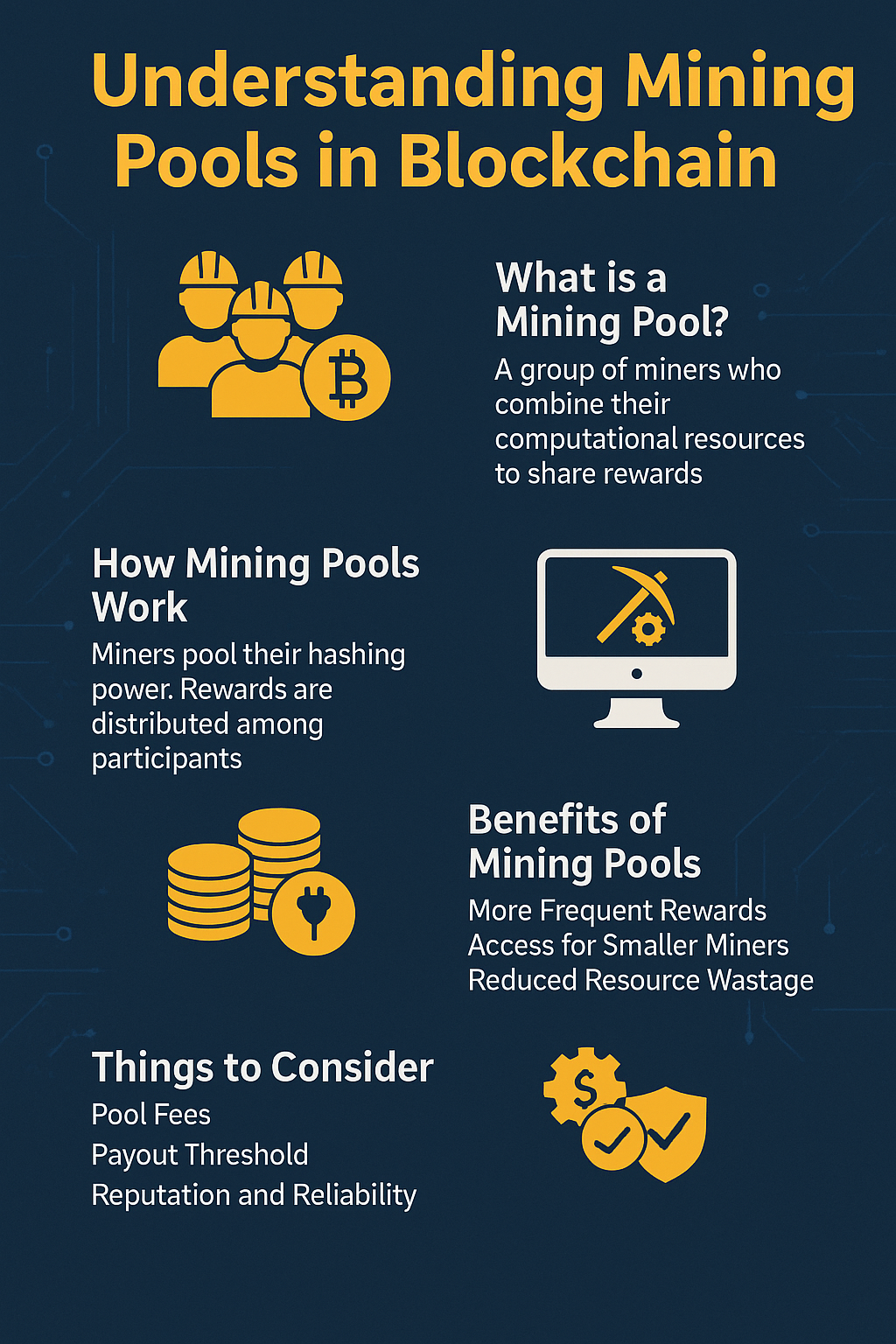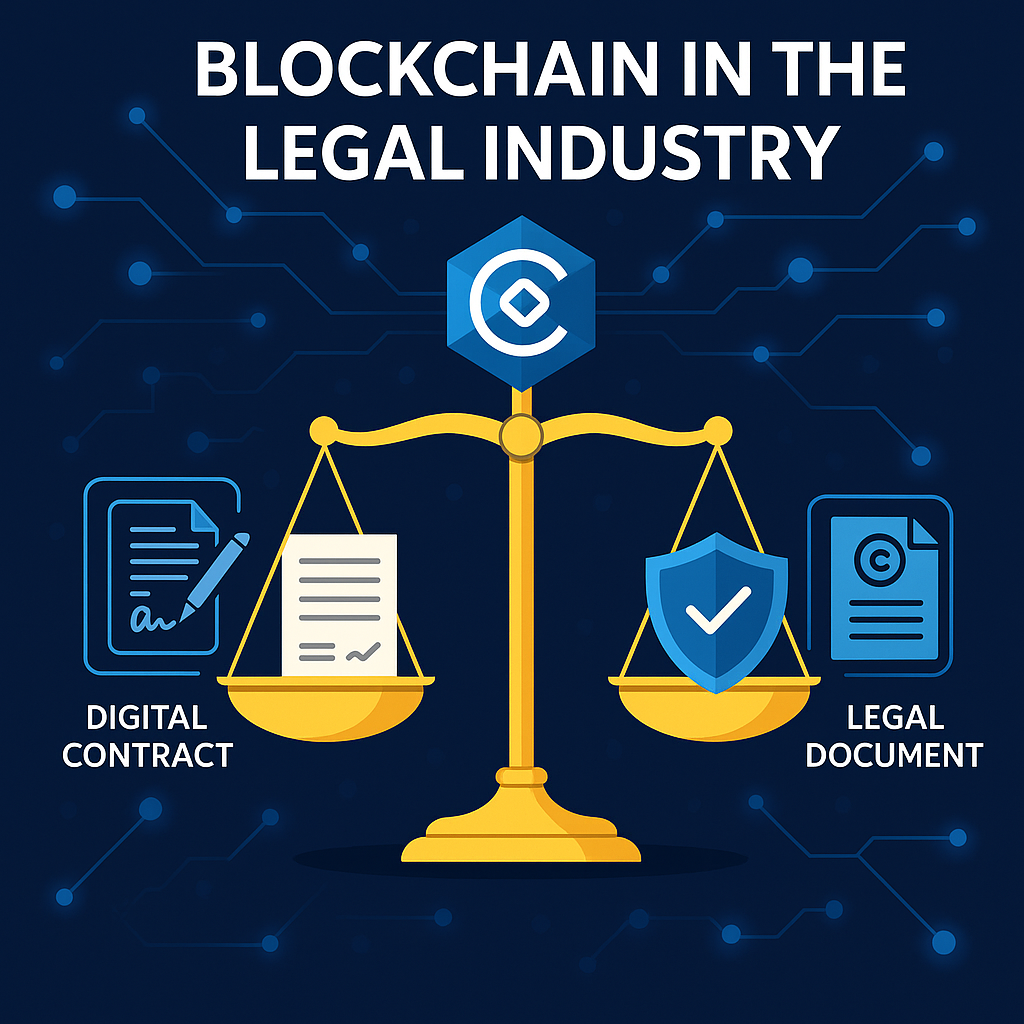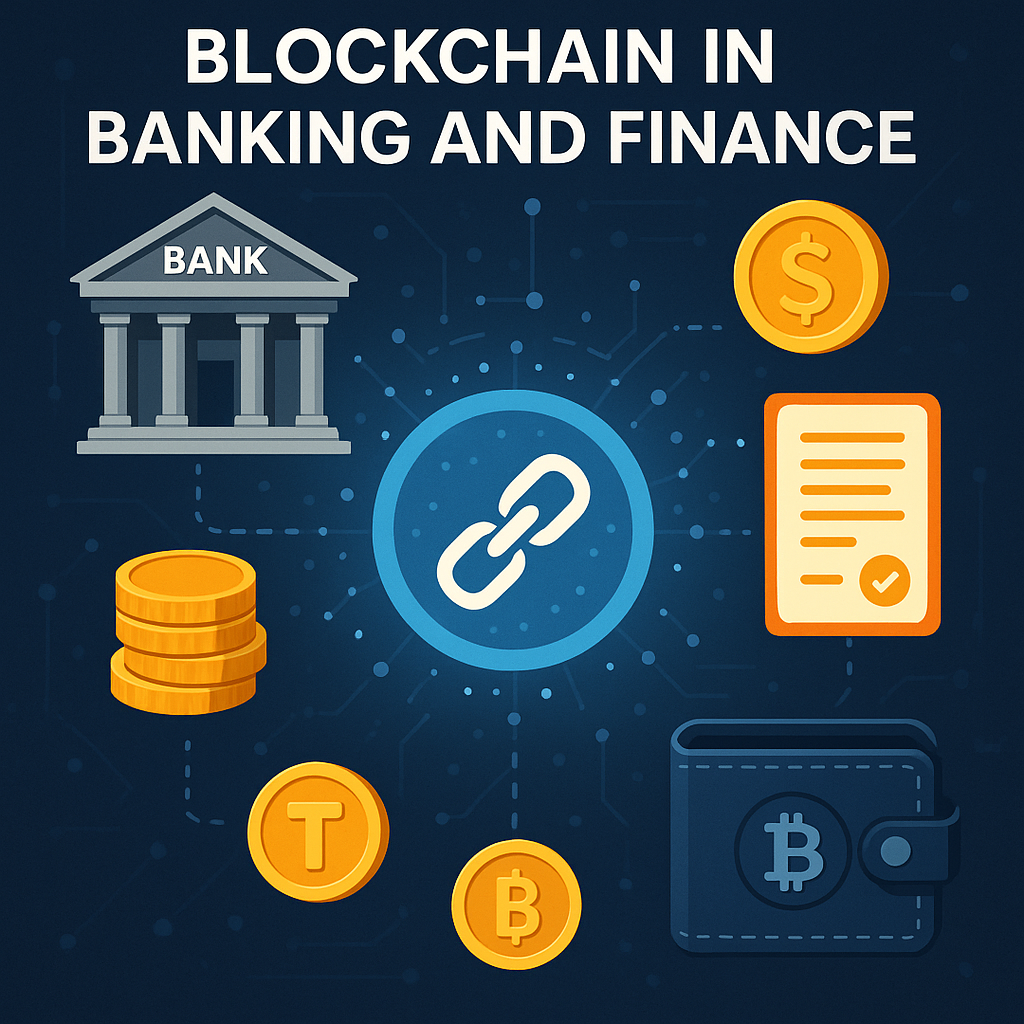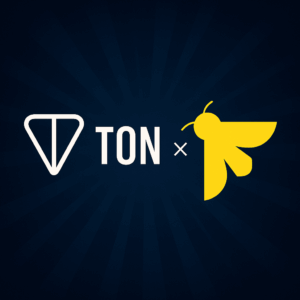Understanding Mining Pools in Blockchain
Blockchain technology, especially cryptocurrencies like Bitcoin, relies heavily on a process called mining. Mining ensures transactions are verified and added to the blockchain. However, as mining difficulty has increased over time, individual miners find it harder to solve blocks and earn rewards. This is where mining pools come into play.
What is a Mining Pool?
A mining pool is a group of cryptocurrency miners who combine their computational power across a network to increase the chances of finding a block and receiving rewards. Instead of mining individually and competing with others, miners work together and share the rewards proportionally, based on the amount of computing power (hash rate) each miner contributes.
How Do Mining Pools Work?
- Pooling Resources:
Miners join a pool and direct their mining hardware toward a shared pool server. - Sharing Rewards:
When the pool successfully mines a block, the reward is distributed among participants. Usually, the more computational power a miner contributes, the higher their share of the reward. - Pool Management:
A pool operator manages the pool, organizes work, and distributes the payouts to miners.
Benefits of Mining Pools
- More Frequent Rewards:
Mining pools reduce the variance in earnings. Instead of waiting a long time for one big reward, miners get smaller, more consistent payouts. - Access for Smaller Miners:
Miners with less powerful hardware can still earn profits by contributing to a pool. - Reduced Resource Wastage:
Pools allow efficient use of hardware, electricity, and time.
Types of Reward Systems
- PPS (Pay-Per-Share):
Guaranteed payout for each valid share submitted. - PPLNS (Pay Per Last N Shares):
Payout based on the number of shares contributed in the last N shares before a block is found. - PROP (Proportional):
Rewards are distributed proportionally to the number of shares miners submit during a mining round.
Things to Consider Before Joining a Pool
- Pool Fees:
Pools usually charge a small fee (1-3%) for maintenance and operation. - Payout Threshold:
Minimum amount you must earn before a payout is made. - Reputation and Reliability:
Join well-known and stable mining pools to avoid scams.
Conclusion
Mining pools have become an essential part of the blockchain ecosystem. They democratize mining, allowing miners of all sizes to participate and earn rewards. Whether you’re a beginner with a small setup or a professional miner, understanding how mining pools work can help you make better decisions in your blockchain journey.
Relax and De-stress while you explore blockchain!
Play Flutter Bees — a fun tapping and defense game designed to help you unwind. In Flutter Bees, tapping in the clicker game or defending the hive boosts your points and helps you complete tasks, making it a perfect stress-buster!






Post Comment